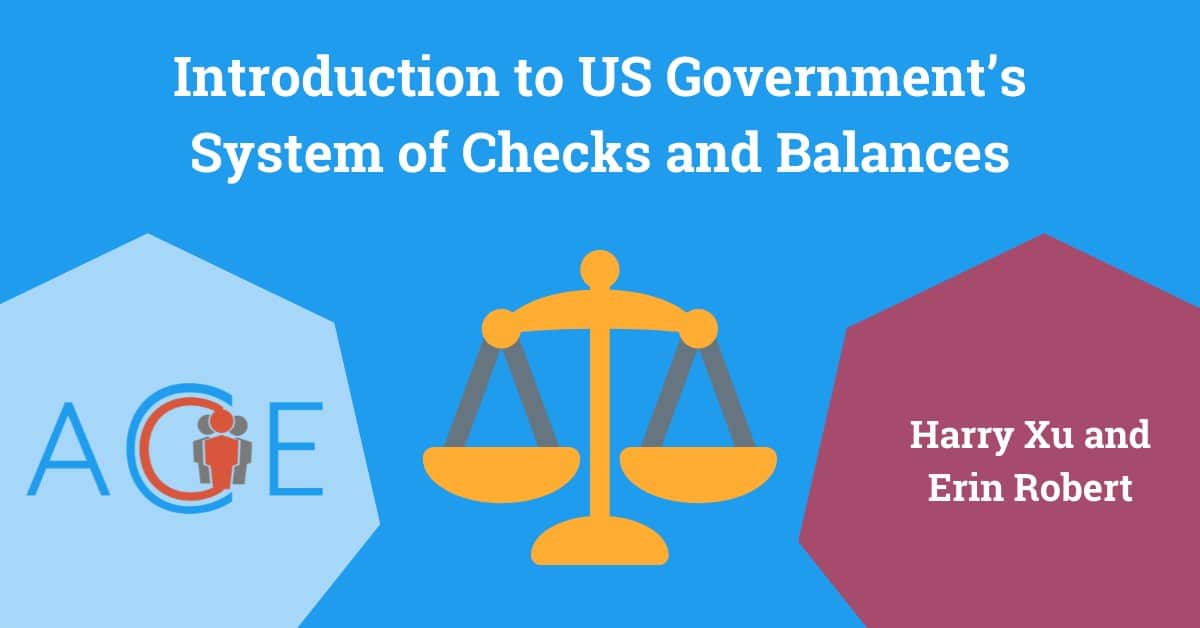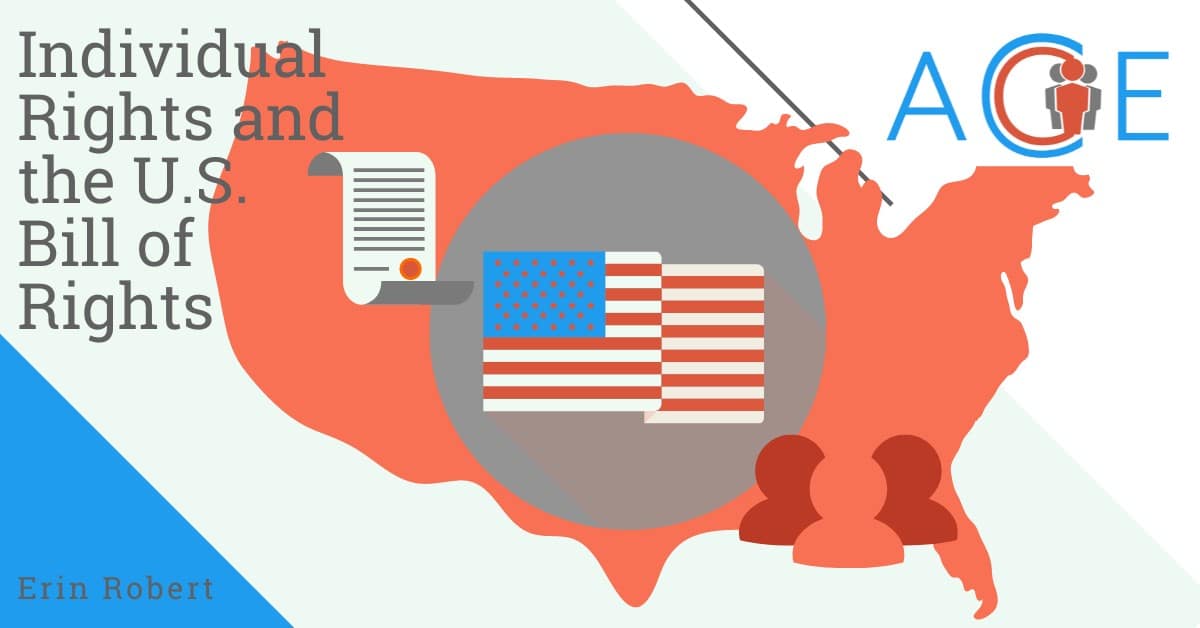Introduction
Checks and balances refers to a system of government allowing separate government branches to “check” or overturn acts of one branch if those acts are unconstitutional. Checks function to “balance” governing power equally among branches. The U.S. federal government’s system of checks and balances exists in the powers shared between its three branches of government which are the executive, legislative, and judicial branches. The U.S system of checks and balances serves democratic governance by functioning to protect individual rights and stop any one part of the government from becoming too powerful.
Historical Motivation
American colonists desired a government that functioned to protect individual rights. In colonial America, the British government enacted laws subjecting colonists to taxation without representation. British authorities stationed in the colonies are also widely documented to have regularly violated colonists’ individual rights. As a result, in 1775, colonists revolted. Their goal was to establish a government that functioned without leadership by one all-powerful person. In doing so, they aimed to establish a government featuring a system of checks and balances—a government comprised of multiple facets, any one of which could step in to overturn acts of another if such acts were likely to result in the violation of citizens’ individual rights. The 1787 Constitution serves this desire by creating a government with three branches and awarding each branch certain governing powers and certain checking powers.
Judicial Branch
The judicial branch consists of the federal judiciary: the Supreme Court, appellate courts, and district courts. The Constitution awards the judicial branch the power to:
- Interpret how federal laws are meant to be applied by their authors,
- Determine whether a law aligns with our Constitution, and
- Apply it to individual cases.
This power only applies to those laws which are tried in court as a result of lawsuits filed by citizens claiming their individual rights have become violated in their application. The Constitution requires that the Supreme Court’s interpretation of laws determine how district and appellate courts must henceforth apply that law to individual cases. This is insofar as their application must agree with this interpretation. The Constitution awards the judicial branch checking power over the executive branch in the form of their responsibility to overturn presidential vetoes they deem unconstitutional. An executive order is an act of presidential power to create a law without prior approval from Congress.
Legislative Branch
The legislative branch consists of Congress i.e., the Senate and the House of Representatives. The Constitution awards the legislative branch governing power to draft (or “make”) laws, declare war, regulate interstate and foreign commerce, and control spending and tax policies. The legislative branch has checking power over the judicial branch in the form of a Congressional chamber’s ability to vote to impeach federal judges and in the form of their responsibility to determine the jurisdiction of federal courts i.e., to determine the types of cases federal courts can rule on. For certain disputes, however, the Constitution overrides the legislative branch’s capacity to determine jurisdiction and guarantees the Supreme Court original jurisdiction. Examples of such disputes are those between U.S. states. The legislative branch also has checking power over the executive branch through the ability to vote to impeach the president and/or members of their administration and in the form of their responsibility to vote to pass treaties proposed by the president, determine Presidential nominations, and determine the current budget for executive offices
Executive Branch
The executive branch includes the president and their administration. The Constitution awards the executive branch the governing power to enforce laws. The executive branch has checking power over the judicial branch in the form of an ability to nominate Supreme Court judges when there is a vacancy. The executive branch also has checking power over the legislative branch in the form of an ability to overturn laws that Congress has recently approved. This act is otherwise known as a presidential veto.


